Search Definitions
Browse Content (p. 170)

Definition
Hannibal
Hannibal (also known as Hannibal Barca, l. 247-183 BCE) was a Carthaginian general during the Second Punic War between Carthage and Rome (218-202 BCE). He is considered one of the greatest generals of antiquity and his tactics are still studied...

Definition
Fertile Crescent
The Fertile Crescent, often called the "Cradle of Civilization", is the region in the Middle East which curves, like a quarter-moon shape, from the Persian Gulf, through modern-day southern Iraq, Syria, Lebanon, Jordan, Israel and northern...
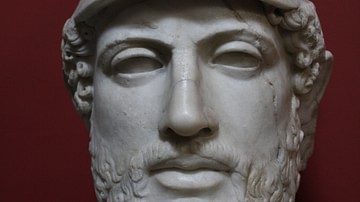
Definition
Pericles
Pericles (l. 495–429 BCE) was a prominent Greek statesman, orator, and general during the Golden Age of Athens. The period in which he led Athens, in fact, has been called the Age of Pericles due to his influence, not only on his city's fortunes...
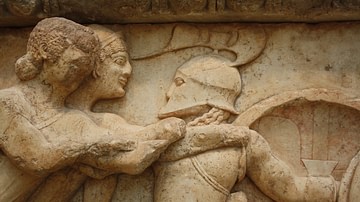
Definition
Ancient Greek Warfare
In the ancient Greek world, warfare was seen as a necessary evil of the human condition. Whether it be small frontier skirmishes between neighbouring city-states, lengthy city-sieges, civil wars, or large-scale battles between multi-alliance...
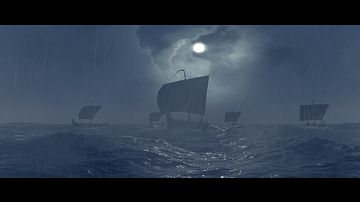
Definition
Bardr mac Imair
Bardr mac Imair (c. 873-881 CE, also known as Barid mac Imair, Barith, Baraid) was a Viking king of Dublin, son of the Viking king Imair (Imar, Ivan) who founded the Ui Imair Dynasty in Ireland. Bardr became king in Dublin after Imair's death...
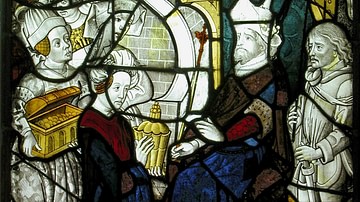
Definition
Queen of Sheba
The Queen of Sheba is the monarch mentioned in the Bible and then in later works who travels to Jerusalem to experience the wisdom of King Solomon (c. 965-931 BCE) of Israel first-hand. The queen is first mentioned in I Kings 10:1-13 and...
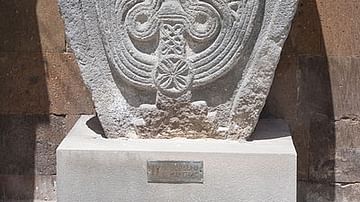
Definition
Vagharshapat
Vagharshapat (Valarsapat), located some 20 km west of modern Yerevan, was an ancient city in Armenia founded in the 2nd century CE. Serving as the capital, the city prospered and, under the new name of Echmiadzin, became the spiritual capital...
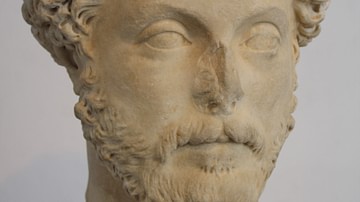
Definition
Marcus Aurelius
Marcus Aurelius (r. 161 to 180 CE) was a Roman emperor best known as the last of the Five Good Emperors of Rome (following Nerva, Trajan, Hadrian, and Antoninus Pius) and as the author of the philosophical work Meditations. Although it has...
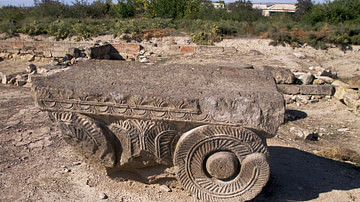
Definition
Ancient Dvin
Dvin (aka Duin), located 40 km south of modern Yerevan, was the capital of early medieval Armenia for four centuries. Founded in the 4th century CE, the city prospered and became the administrative head of the Armenian church. Remaining the...

Definition
Religion in the Ancient World
Religion (from the Latin Religio, meaning 'restraint,' or Relegere, according to Cicero, meaning 'to repeat, to read again,' or, most likely, Religionem, 'to show respect for what is sacred') is an organized system of beliefs and practices...